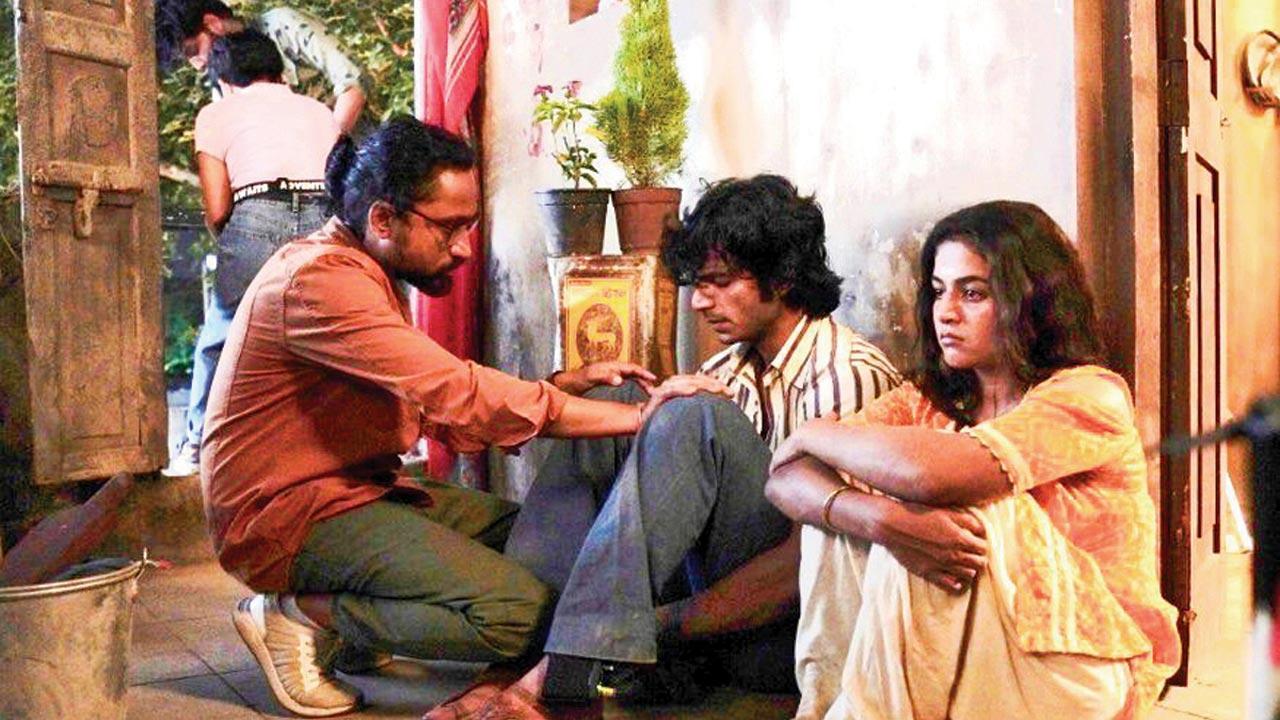Revisiting 1984 riots through the lens of a love story, Grahan director discusses how initial public opposition softened due to the sensitive handling of series

Director Ranjan Chandel explaining a scene to Anshuman Pushkar and Wamiqa Gabbi
Among the most discussed web series since the stellar The Family Man 2 is 'Grahan'. Set against the backdrop of the 1984 Sikh riots, the eight-part series is being lauded for its balanced approach. For Ranjan Chandel, who has helmed and co-written the Disney+ Hotstar series, it is a product of divine intervention. He remembers working on the post-production of Bamfaad (2020) when he came across Satya Vyas’s novel Chaurasi. “I was attracted to its poetic storytelling, and the compelling love story. I considered translating it into a movie. But I got busy with other things. Then, producer Ajay Rai contacted me to adapt a book, and it turned out to be the same book. At that very moment, I knew I had to make the show,” begins the writer-director.
Creating the world of Grahan — which features Pavan Malhotra, Zoya Hussain and Wamiqa Gabbi — was not easy, especially since the narrative straddles two timelines, the ’80s and the present day. “The novel’s story is only a part of the series. We built upon it to make it relevant in the modern times. Writing was a challenge because we were dealing with sensitive subjects here, but in my heart, it remained a relationship drama. A love story from the ’80s marred by socio-political issues runs parallel to a father-daughter relationship as the daughter is handed a case from that decade. Socio-political elements were consciously kept in the periphery.” Chandel developed draft after draft, knowing that sensitive treatment of the subject was imperative to its success. “Three months before the shoot, I started rewriting the draft because I didn’t want to leave any room for imbalance. Shooting was another challenge. We had done our recce at Bokaro, but due to the pandemic, the steel plant was shut. We initially planned to shoot in Ramoji Film City in Hyderabad, but eventually shot it in Lucknow after the Uttar Pradesh government allowed shoots.”
Ranjan Chandel
Upon the trailer’s release, the Shiromani Gurdwara Parbandhak Committee (SGPC) president Bibi Jagir Kaur slammed the series for portraying a Sikh character in an “objectionable manner”. A witness of the 1984 riots had also sent a legal notice to the makers. “I wasn’t worried because I knew when people watch the show, they will know our intentions are pure. A lot of those who sent us harsh texts, sent us apology messages after watching the show. Art speaks for itself. Our vision was clear — we focussed on how the riot wreaked havoc in the lives of the people; we never reflected our personal political leanings.”
If Chandel is able to take on such brave subjects, he credits mentor-collaborator Anurag Kashyap for the feat. Having co-written Mukkabaaz (2018) with Kashyap, he says, “I had no formal training in filmmaking. When I came to Mumbai in 2011, I had nothing but stories with me. For four years, I went door-to-door in Versova with my half-written ideas. When I met Kashyap, he probably saw promise in me. We started working on a script that never worked out. In 2015, we started Mukkabaaz, and that was my schooling. I learnt on the job; he honed my talent and his process brought out the filmmaker in me.”
Also Read: mid-day's OTT recommendations: Five movies and shows that you can binge-watch
 Subscribe today by clicking the link and stay updated with the latest news!" Click here!
Subscribe today by clicking the link and stay updated with the latest news!" Click here!









